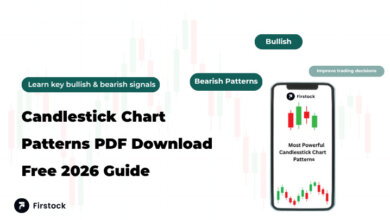Top Benefits of Academic Conferences for University and Industry Partnerships!
Exploring the Key Advantages of University-Industry Engagement Through Conferences!

Academic conferences are structured events where scholars, researchers, and professionals come together to present findings, share ideas, and explore new trends in their fields. These conferences are more than just forums for academic dialogue—they serve as powerful platforms for building connections between universities and industry leaders.
For many researchers and educators, these events also provide a vital opportunity to submit academic papers for presentation and publication. This not only helps in showcasing original work but also opens doors to valuable feedback, collaborative research, and potential funding. Whether you’re a student or an experienced academic, submitting your paper to a reputable conference can significantly boost your visibility and impact.
Knowledge Exchange and Innovation
Academic conferences act as dynamic platforms where groundbreaking research meets practical application. These gatherings enable scholars to present their latest findings and innovations, often before they are published in journals or adopted widely. This early exposure to cutting-edge research fosters a rich environment of intellectual exchange.
For industry leaders, attending these conferences offers a valuable glimpse into the future of their fields. They gain firsthand access to academic insights, emerging trends, and experimental technologies that could shape their industry in the coming years. This awareness helps companies stay ahead of the curve and align their strategies with the latest innovations.
Networking Opportunities
One of the most significant advantages of academic conferences is the wealth of networking opportunities they offer. These events bring together a diverse group of participants, including university researchers, students, faculty members, industry professionals, and corporate representatives—all under one roof. This environment encourages meaningful face-to-face interactions that often lead to fruitful conversations and shared interests.
Through keynote sessions, panel discussions, and informal meetups, attendees can establish valuable connections that extend beyond the duration of the conference. These interactions often lay the groundwork for long-term collaborations, including joint research projects, co-authored publications, or industry-sponsored academic initiatives.
For students and early-career researchers, conferences also serve as a gateway to future opportunities. Many companies use these events to scout potential interns or entry-level talent, while faculty members may find consulting roles or advisory positions with industries aligned with their expertise. These engagements not only enhance academic careers but also bridge the gap between theory and practical application.
Research Funding and Investment Opportunities
Academic conferences are not only venues for sharing knowledge—they are also fertile grounds for attracting funding and investment. For universities, these events present a strategic opportunity to pitch innovative research projects to potential corporate sponsors. Presentations, poster sessions, and networking events allow academic institutions to showcase their work to industry leaders who are actively seeking new ideas and technological advancements.
Industries, on the other hand, attend conferences to discover promising research that aligns with their strategic goals. Many companies are eager to invest in academic projects that have commercial potential, such as new technologies, scientific breakthroughs, or sustainable solutions. Conferences allow them to evaluate the feasibility of such research, meet the people behind it, and initiate early-stage collaborations.
Talent Identification and Recruitment
Academic conferences serve as valuable platforms for identifying and recruiting top talent. Companies from various sectors actively participate in these events to scout skilled individuals—ranging from undergraduate and graduate students to postdoctoral researchers and experienced faculty members. These attendees often represent the forefront of academic innovation and research, making them highly desirable candidates for industry roles.
For universities, conferences provide a unique opportunity to showcase the achievements of their students and researchers. Presenting cutting-edge projects, innovative prototypes, or entrepreneurial startup ideas not only highlights institutional excellence but also attracts interest from industry partners seeking fresh perspectives and specialized skills.
Policy Influence and Curriculum Development
Academic conferences are not only platforms for knowledge sharing—they also play a critical role in shaping the future of education through policy influence and curriculum development. One of the key outcomes of these events is the open dialogue between academic institutions and industry representatives regarding the relevance and effectiveness of current educational programs.
Industry leaders often provide valuable feedback on evolving skill demands, technological advancements, and real-world workplace expectations. This input allows universities to revisit and update their curricula to ensure students are being trained in areas that align with current and future job market requirements. Whether it’s integrating AI into computer science programs or emphasizing sustainability in engineering courses, conferences help spark these essential conversations.
Commercialization and Technology Transfer
Academic conferences often act as powerful launchpads for the commercialization of research and technology transfer. Universities engaged in cutting-edge research use these platforms to showcase new inventions, scientific breakthroughs, and innovative solutions that are ripe for real-world application. Through conference presentations, demonstrations, and exhibitions, academic institutions can attract interest from potential industry partners looking to license technologies or acquire patents.
For university-affiliated startups and research-based spin-offs, conferences offer unmatched visibility. These early-stage ventures gain the opportunity to present their business models, prototypes, or technologies directly to investors, venture capitalists, and corporate R&D teams. This exposure can lead to funding opportunities, pilot testing, or long-term commercial partnerships.
Building Strategic Long-Term Alliances
Academic conferences often lay the foundation for meaningful, long-term partnerships between universities and industry leaders. What begins as a single conversation or collaborative idea at a conference can evolve into formal commitments—such as Memorandums of Understanding (MoUs), joint research agreements, or innovation-focused alliances.
These formal partnerships allow universities and companies to engage in multi-year projects that drive research, product development, and workforce training. For example, a university’s engineering department might collaborate with a tech company to develop advanced robotics, or a pharmaceutical firm might work with a medical school on drug discovery research. These alliances are built on mutual goals and shared investment, benefiting both academic advancement and industry innovation.
Academic conferences play a pivotal role in bridging the gap between universities and industry leaders. As highlighted throughout this blog, these events offer numerous benefits—from facilitating knowledge exchange and innovation to opening doors for research funding, talent recruitment, and technology transfer. They also help align academic programs with industry needs, influence education policy, and establish long-term strategic partnerships.
Beyond presentations and panel discussions, conferences create a unique environment where real-world problems meet academic solutions. They foster meaningful connections, spark collaborative projects, and often serve as the starting point for innovations that drive both educational and industrial growth.




